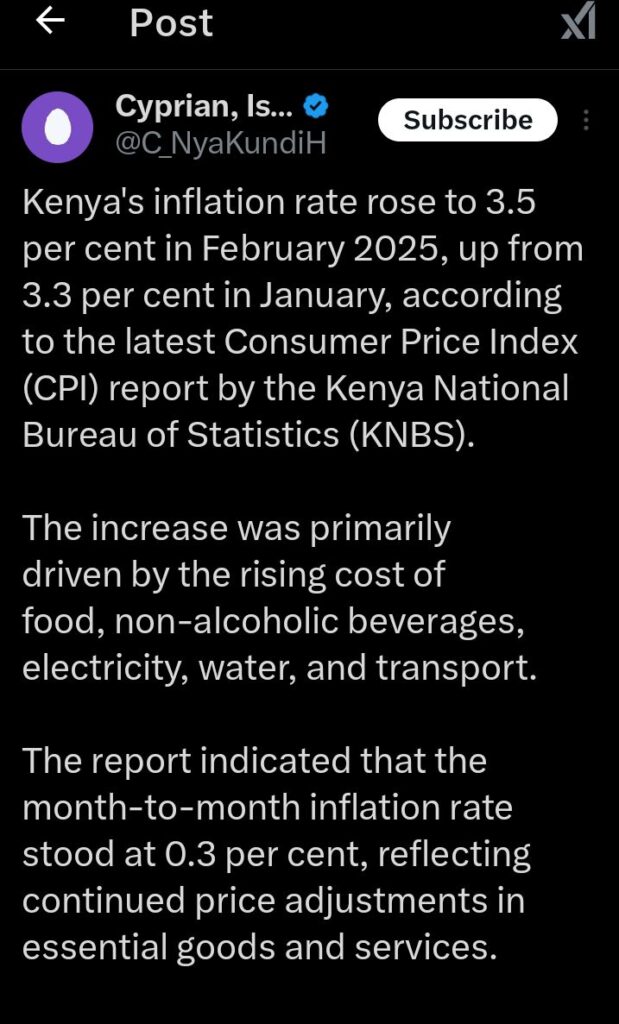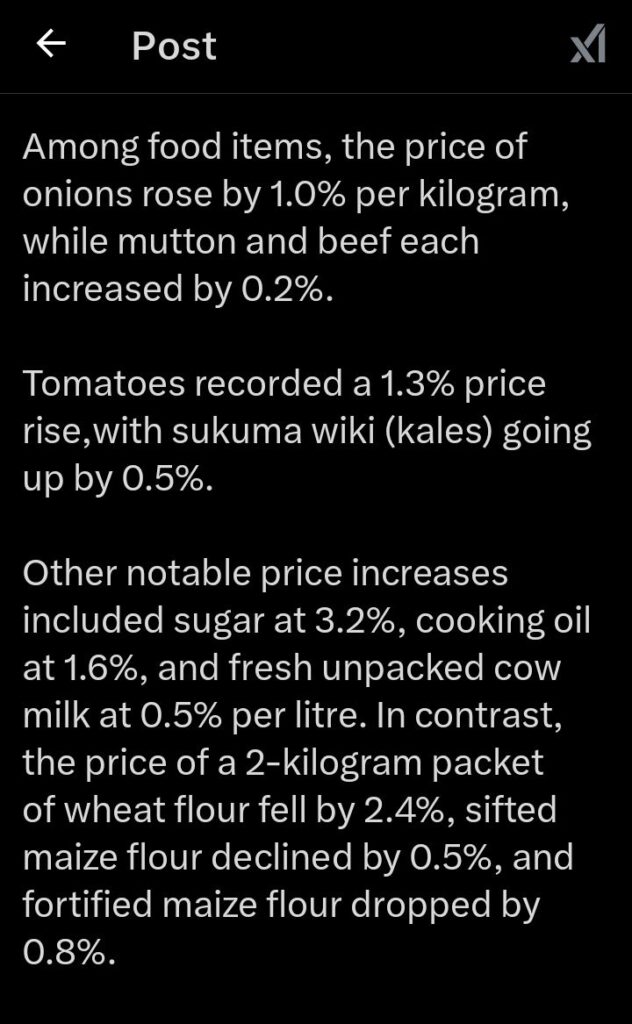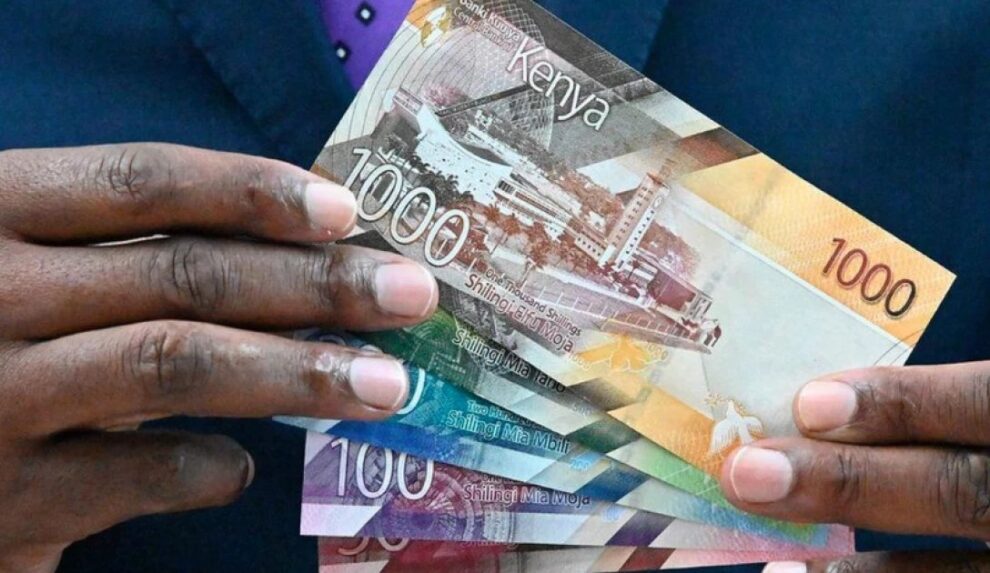Kenya’s inflation rate rose to 3.5 percent in February 2025, up from 3.3 percent in January, according to the latest Consumer Price Index (CPI) report by the Kenya National Bureau of Statistics (KNBS).
This increase was driven by rising costs of food, non-alcoholic beverages, electricity, water, and transport. The report also noted that the month-to-month inflation rate stood at 0.3 percent, showing continued price adjustments in essential goods and services.
Food prices played a major role in the inflation rise, with several essential items becoming more expensive. The price of onions increased by 1.0 percent per kilogram, while mutton and beef each saw a 0.2 percent rise.
Tomatoes recorded a 1.3 percent increase, and sukuma wiki (kales) went up by 0.5 percent. The cost of sugar rose significantly by 3.2 percent, cooking oil increased by 1.6 percent, and fresh unpacked cow milk went up by 0.5 percent per liter.
These price increases have a direct impact on household budgets, making it more expensive for families to afford basic food items.However, not all food items saw a price increase. The price of a 2-kilogram packet of wheat flour fell by 2.4 percent, while sifted maize flour dropped by 0.5 percent, and fortified maize flour declined by 0.8 percent.

These decreases may offer some relief to consumers, but the overall rise in other essential food items offsets any significant benefits. Non-food items also experienced price changes. The cost of a one-way local flight ticket dropped by 4.8 percent, which could benefit travelers, especially businesspeople and tourists.
The price of miraa (khat) decreased by 4.5 percent per kilogram, while electricity tariffs for 200 kilowatts reduced by 1.8 percent. The decline in electricity costs may help ease expenses for households and businesses, but the rising cost of food and transport still contributes to overall inflation pressures.
The KNBS compiles the Consumer Price Index by collecting retail prices during the second and third weeks of every month. This data helps in tracking inflation trends and is an important macroeconomic indicator.

Policymakers and economists use these inflation figures to assess the economic situation and make necessary adjustments in fiscal and monetary policies.
A rise in inflation, even a slight one, affects the cost of living for Kenyans. Many households already struggle with high expenses, and an increase in food and essential services makes life more difficult.
Even though some prices have gone down, the overall cost of living remains a challenge, requiring careful economic planning to ensure inflation remains manageable.





















Add Comment